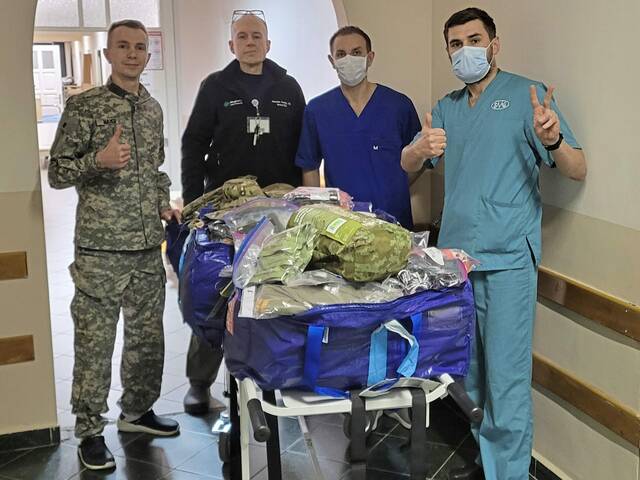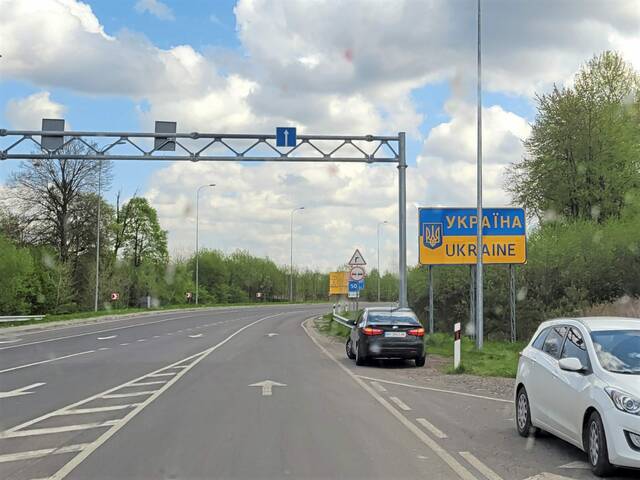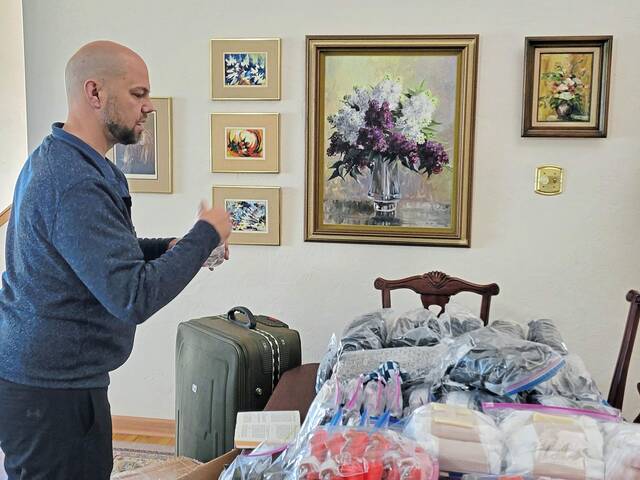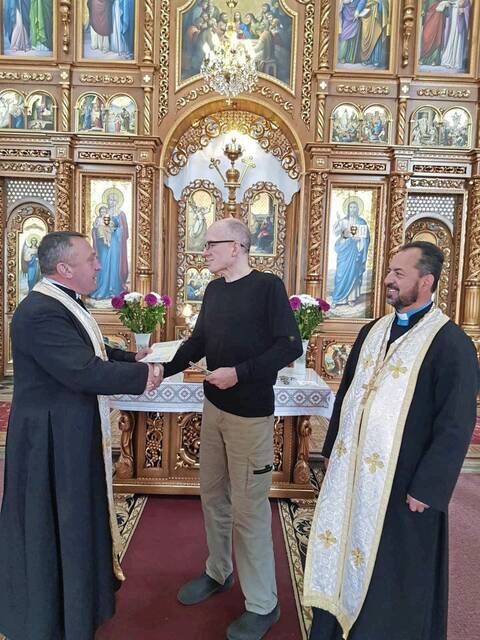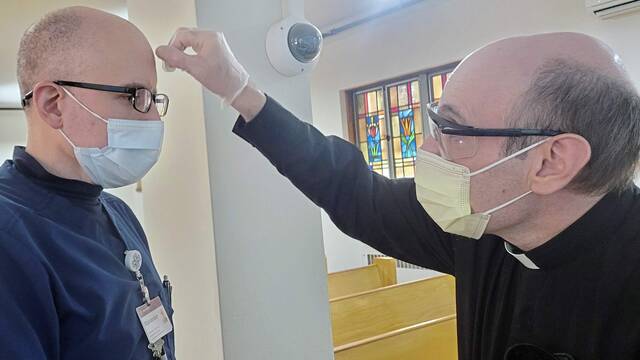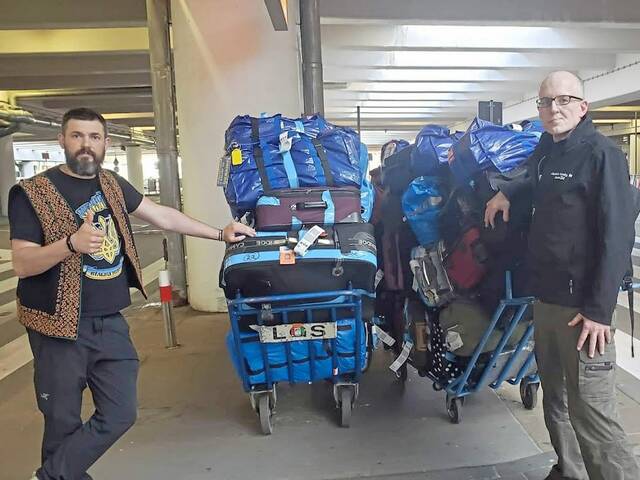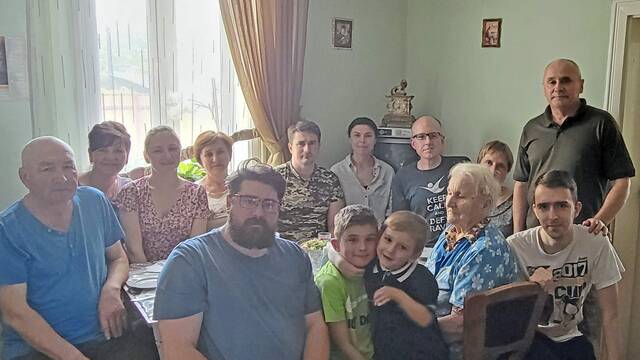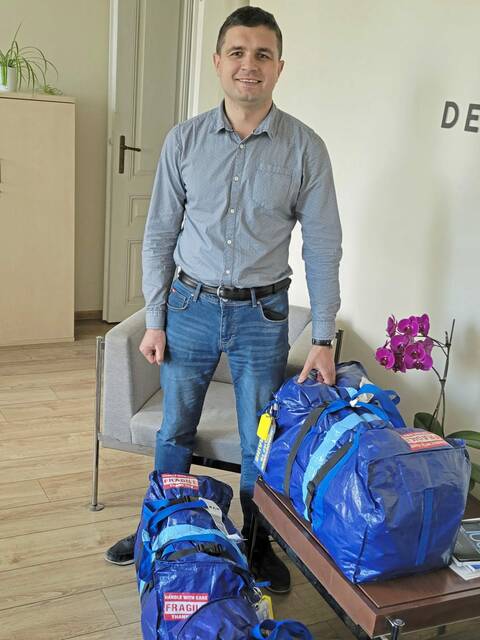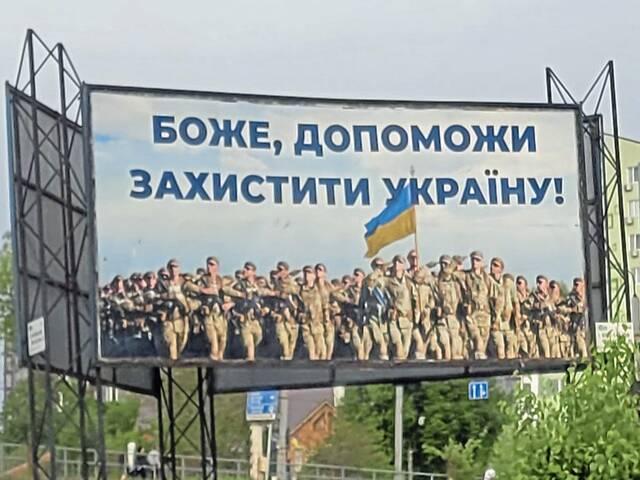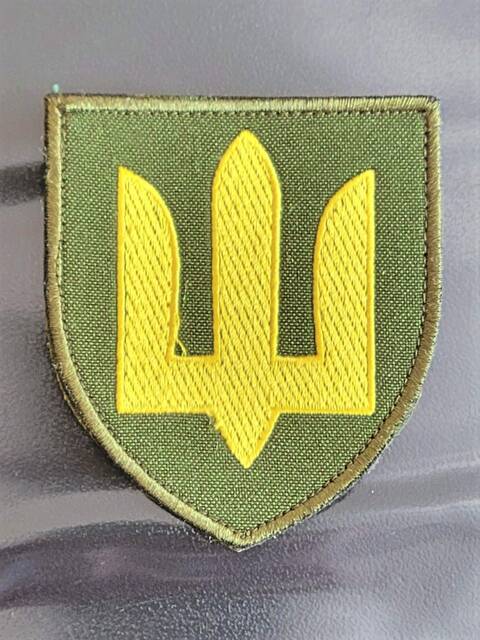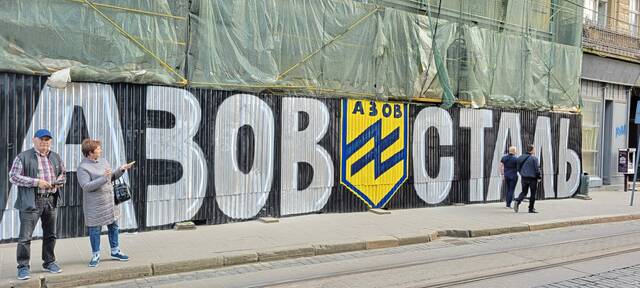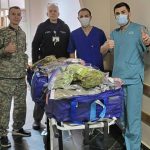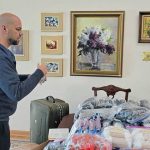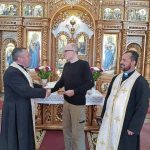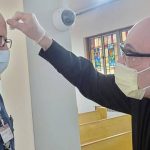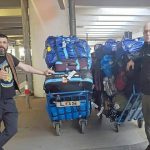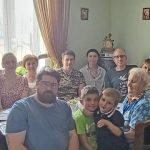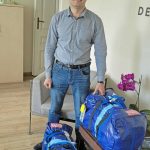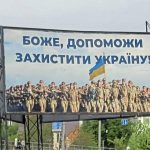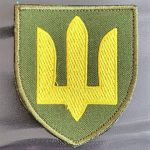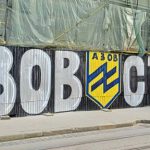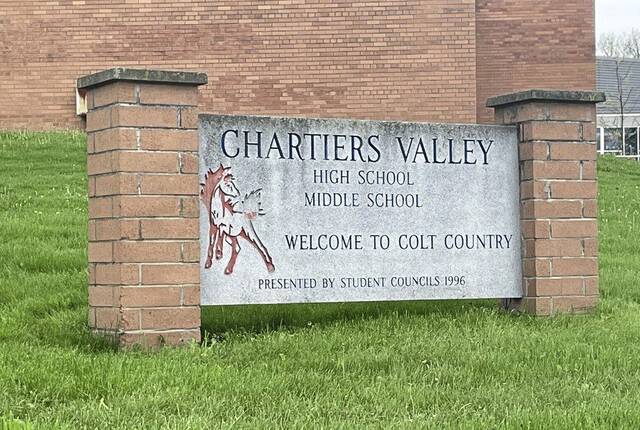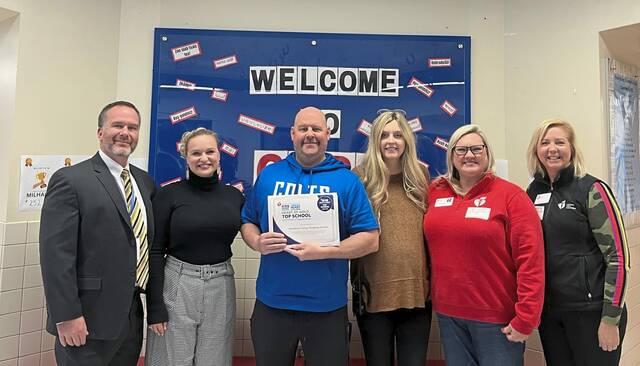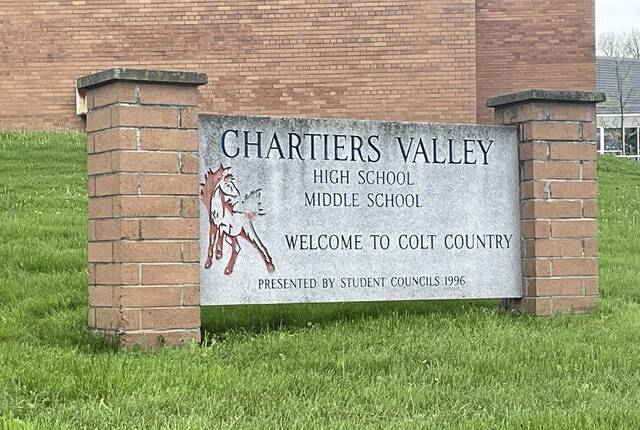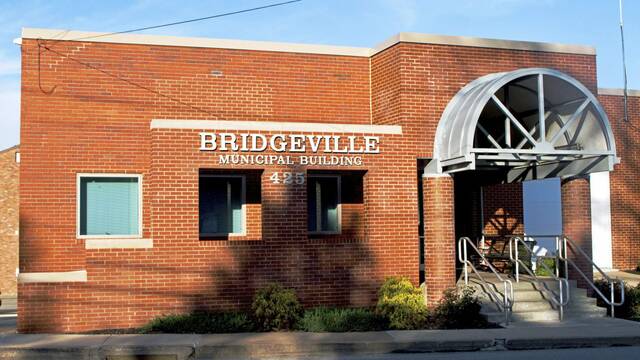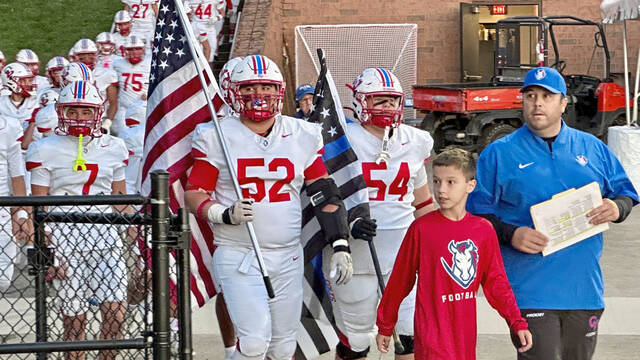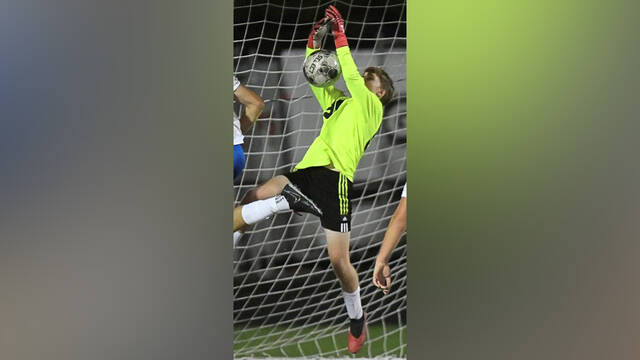As humanitarian aid continues to head for Ukraine, reports inevitably crop up about supplies not necessarily reaching their intended destinations.
“That may have been undermining the effort here to get people to assist Ukraine,” Alexander Konecky said. “So I felt that when I was finally able to go there and actually, personally deliver it for those who are on the front lines, it may encourage people to continue to donate, knowing that we able to get it where it needs to go.”
Rest assured that a recent mission he led to take two tons’ worth of essentials to the embattled eastern European nation was a success, on behalf of troops fighting Russian invaders along with Ukrainian civilians whose lives have been devastated by war.
A parishioner of Holy Trinity Ukrainian Greco-Catholic Church in Carnegie — its pastor, Father Jason Charron, organized an effort early in the war to rescue orphans from the country — Konecky learned that his cousin’s son would be serving in the armed forces for Ukraine.
“The only way I could ensure that my nephew was to receive these items was to actually go there. That’s kind of where the impetus came from to go to Ukraine,” Konecky said. “Since I already had committed to going to Ukraine, anyway, now I was looking for ways to maximize the benefit I could be drawing from this, not just simply to help my nephew but offer as much as possible.”
Charron’s continuing efforts to coordinate Pittsburgh-area relief efforts netted, among many other acts of largesse, a donation of nearly $300,000 in surgical equipment that became an integral part of what Konecky and his team transported. Holy Trinity provided funds for specialized medical equipment tailored for combat-related needs.
Also on the list of items to purchase was body armor, and Konecky contacted a company called RMA Armament about placing a relatively large order.
“They initially told me, ‘Well, there’s a back order of four to six weeks. Everything we have is going to Ukraine,’ ” he said, mentioning that was his destination, as well. “As soon as I said that I was going to Ukraine, they put me on hold, and came back and said, ‘I can have it to you in two days.’ Sure enough, two days later, I had 20 bulletproof vests show up on my doorstep.”
Another 20 came courtesy of the police department in Green Tree, where Konecky lives. He said the armor is made of lightweight material that can allow surgeons, in particular, to carry out their duties while experiencing a greater degree of safety.
The Holy Trinity contingent delivered cash assistance, through churches and other relief agencies, to help “widows and orphans who lost their husbands and fathers as a result of Russia’s war of aggression in Ukraine,” Konecky said. “It wasn’t simply supplies, but we’re also reaching out to and helping the local Ukrainian refugee outreach efforts.”
While at the Military Medical Clinical Center of the Western Region in Lviv, Konecky met an American from Philadelphia who received treatment for a shrapnel wound he suffered while fighting on behalf of Ukraine. The soldier gave Konecky a patch from his uniform.
“He wasn’t even of Ukrainian descent,” he said. “I asked him if he ever regretted it, and he said, ‘No. I have no intention of leaving until I see this through.’”
Konecky, on the other hand, is 100% Ukrainian, with his parents having been born there. He had an opportunity to visit family members, his cousin’s military son included, in the town of Bohorodchany, a couple of hours away from Lviv in the western portion of the country.
“Their standard of living was very much on par with the upper middle class in the United States. And then, everything changed,” Konecky said. “It immediately switched into a wartime mindset, where you’re rationing. You’re conserving, kind of like what you hear stories about here during the Second World War.
“That’s how they are now.”


